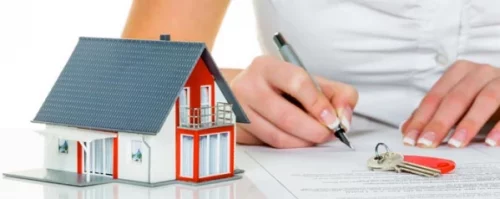Preliminary steps
Usually, before preparation of the Deed of Sale, the buyer and the seller sign a private contract. This private document is not obligatory and shall not be registered in the Registry, but by law, it is valid and binding for both parties. Therefore, if you are buying a property, it is very important to take legal advice before signing any document. Although the consultant is not involved in the deal directly, he can help you to solve your juridical doubts.
In the private contract, you must pay attention to some important questions:
• Who will sign by the seller.
• Outstanding debts. It is very important to check whether the property is free of charges and debts, whether it is a mortgaged or a distressed property or whether there are any limitations in the statutes of the owners.
• Community charges of the owners. Before the purchase, make sure that you are aware of all community payments and expenses.
• Price. Determine clearly the price and method of payment.
• Downpayment.
• Expenses of the transaction.
The Notarial Act and Deed of Sale:
• It is irrefutable. The parties of the Deed of Sale declare before a notary their willingness to buy and sell the property and conditions of the sale. The official public notary authenticates these statements in writing so that any party cannot deny what they have said. The Deed of Sale is preferable evidence in court.
• It provides legal guarantees. The notary provides legal guarantees by checking and verifying that the issues stipulated in the private document correspond to the law.
• In the Deed of Sale Notarial Act, the notary:
■ Checks the identity, capacity and legitimacy of the seller and the buyer
■ Presents the state of burdens and debts of the property
■ Confirms the payment of the community charges
■ Asks for proof of property tax (IBI) payment and the cadastral reference number of the apartment or house to check its correspondence with the documents of the seller, informs the parties about discrepancies and changes the ownership of the next receipts of IBI
■ Notifies the parties of their legal obligations and especially tax obligations arising from the sale
■ Explains the sharing of the expenses of the transaction between the parties
■ Manages the payment of the various expenses as per the Deed of Sale, in case the parties request it
Subsequent procedures
Once the Deed of Sale is signed, follow these steps:
• Payment of taxes and registration in the Land Registry. If you personally perform this step, ask for the deadlines to avoid penalties or loss of rights.
• Supplies. Do not forget to inform providers of the services to your new house about change of owner.
• Documentation and invoices. Keep all documents, receipts, warranties and original invoices of your purchase.
Expenses arising from the purchase of an apartment or a house
Notarial Minutes: The notary invoice for fees, which are fixed by the Government. They are the same for all notaries.
Registration Minutes: The property registrar invoice for the register of notarial act; it is also established by the Government by fixing the rates, which are identical for all registers.
Service agency minutes: The invoice of your representative for his services. You also can do it by yourself or transfer it to the notary.
Municipal Tax on the Increase in Value of Urban Land, also known as Municipal Goodwill. By law, it shall be paid by the seller, who can ask the exact amount in the corresponding municipality.
Other taxes: By law, they shall be paid by the buyer.
VAT: For a new-built property, you have to pay 10 % of VAT on the sale price.
AJD: In case of new-built property, you have to pay the Juridical Acts tax (AJD). Its amount varies from 1% to 1.5% depending on the region.
TPO: In case of second hand property, you have to pay the Property Transfer Tax (TPO). Its amount varies from 6% to 10% depending on the region.
Income Tax: Finally, paying its income tax the seller shall mention the property income that can be up to 27%.
And remember…
• The buyer has the right to choose the desired consultant for the guidance during this complicated process.
• The consultant shall be involved in a whole process taking care of the buyer.
• Do not sign anything you do not understand or you are not sure, because once the document is signed, you cannot turn it back. If you have any doubts, always ask your consultant.




